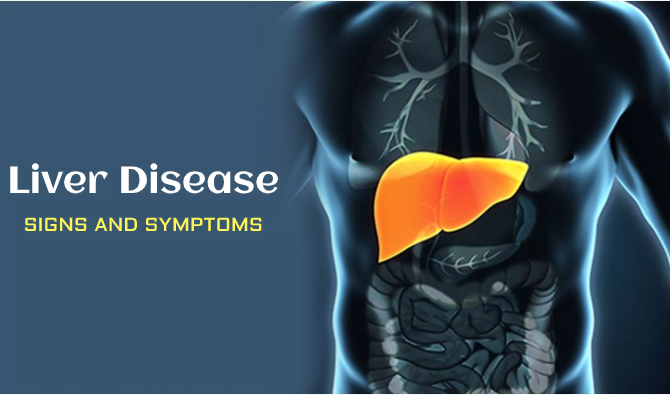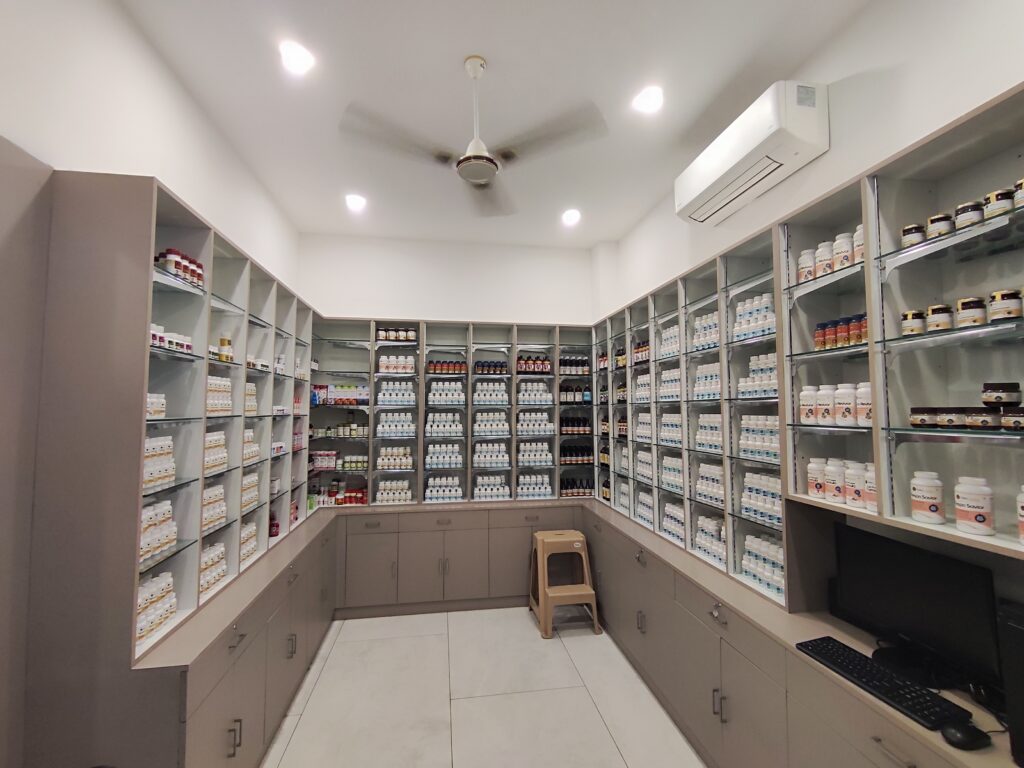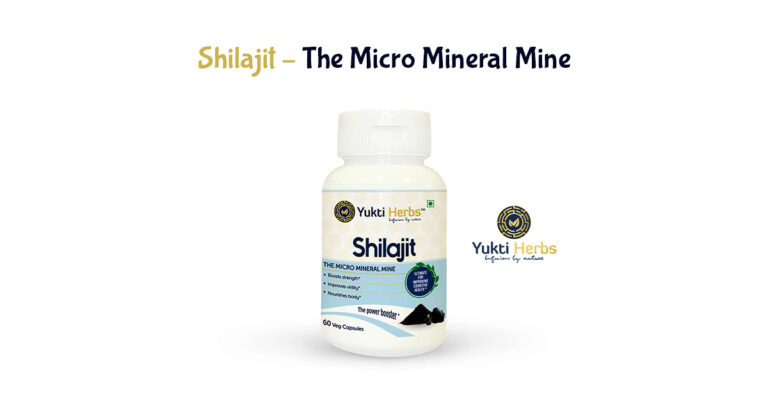Introduction of Shilajit – The Micro Mineral Mine
Shilajit is a naturally-occurring, blackish-brown, sticky substance that is widely used in Ayurvedic formulations. It is a rock mineral with a proven ability to improve cognitive health. Though the usage of Shilajit is most commonly associated with male sexual health, it actually has the potential to manage almost all kinds of health conditions for both men and women. It can be used for treating nervous disorders, cardiac disorders, digestive problems, urinary disorders, and immune disorders. Shilajit is, therefore, considered an excellent dietary supplement for improving overall health and well-being.
The medicinal properties of Shilajit have been described in several ancient works, such as Charaka Samhita, Sushruta Samhita, and Hindu Materia Medica. In fact, the mention of the Shilajit herb and its medicinal significance in Ayurvedic texts dates back more than 3000 years. Shilajit is considered a ‘Rasayana’ compound in Ayurveda because of its anti-aging and rejuvenating properties. Similar to any other ‘Rasayana’ compound, Shilajit has two main characteristics:
- the ability to boost physical strength
- the ability to promote good health.
At Yukti Herbs, the best quality of Shilajit is available in a packing of 60 capsules, which means 1 full month of supply!!
Shilajit Synonyms
‘Shilajit’ is a Sanskrit word that literally means ‘conqueror of rock’ or ‘winner of mountains’. Hence, the implicit inference from the literal meaning of the word is ‘destroyer of weaknesses.’
It is known by some other names as well. In India, Shilajit is called by different names – including Silajit, Silajatu, or Shilajatu – in different states. Some of these names are:
- Asmaja
- Asmajatuka
- Adrija
- Gaireya
- Girija
- Kanmandam
- Moomie
- Moomiyo
- Memiya
- Punjabinum
- Saileya
- Shilaja
- Shiladhatuja
- Shilamaya
- Shilasweda
- Shilaniryasa
Meanwhile, in English, Shilajit is generally referred to as Asphaltum, Mineral Wax, Mineral Pitch, Jew’s Pitch, Ozokerite, or Black Bitumen
Shilajit Habitat
Shilajit is a gelatinous, resin-like substance, which is formed naturally in the rocks of several high mountain ranges across the world. These mountains – including the Himalayan mountains, the Altai Mountains, and the Tibetan mountains – have an altitude ranging between 1000 meters and 5000 meters. The Shilajit-rich mountains are located in Himachal Pradesh, Kashmir, Uttarakhand, and Arunachal Pradesh in India. Some of the other countries where Shilajit is found in high mountains include Nepal, China, Tibet, Afghanistan, Pakistan, and Bhutan.
The formation of Shilajit is a slow and long natural process. It can be described as the process of extraction of ‘juice of rock’ or ‘blood of mountains’. The Shilajit-formation process involves the decomposition of certain plants and minerals in the mountain rocks. The decomposition takes place because of the action of certain microorganisms.
Medical Properties of Shilajeet
Shilajit is the best mineral compound. The medical properties of Shilajit result from the presence of mineral-rich compounds called fulvic acid and humic acid. Both these compounds are known for their anti-inflammatory and antioxidant properties. The compounds can also increase the absorption of nutrients by the body.
The chemical composition of Shilajit largely depends on the natural habitat in which it is found. The key factors which affect the chemical composition are the altitude of the mountains, the temperature of the surrounding area, the plant species which gets decomposed in the mountainous rocks, and the geological nature of the rocks in which Shilajit is formed.
Shilajit contains approximately 70% organic matter, 25% mineral matter, and 5% trace elements. Altogether, nearly 84 bio-active components are present in Shilajit. Some of these components include fatty acids, albuminoids, gums, resin, and waxy substances, Hippuric acid, Benzoic acid, and vegetable matter. Moreover, Shilajit also contains amino acids, ellagic acid, triterpenes, phenolic lipids, and sterols. The plant-derived minerals present in Shilajit – in ionic form – include iron, copper, silica, calcium, magnesium, lead, lithium, zinc, sodium, selenium, and phosphorus.
Shilajit Ayurvedic Properties and Effect on Vata, Pitta, and Kapha
According to Ayurveda, Shilajit extracted from Himalayan rocks has light and dry qualities or Guna (Laghu and Ruksha Guna). It has three distinguishing Ayurvedic tastes or Rasa – bitter (Tikta Rasa); pungent (Katu Rasa); and astringent (Kashaya Rasa). It has a cold potency (Shita Virya).
So far, as the effect of Shilajit on the three Dosha is concerned, it has the ability to balance all the three Dosha – Vata, Pitta, and Kapha – of the body. More specifically, it can pacify the Vata and Kapha doshas, and detoxify the Pitta Dosha.
Moreover, Shilajit is also known to have a positive effect on different body tissues (Dhatus). These tissues include blood (rakta), plasma (rasa), Asthi (bones), reproductive fluids (Shukra), and muscles (mamsa).
Uses and Benefits of Shilajit
Shilajit is a very beneficial Ayurvedic medicine that has the ability to cure different kinds of ailments affecting the human body. It can nourish the body, strengthen the immune system, enhance memory and concentration, reduce inflammation, boost energy, and eliminate excess fluids from the body. Furthermore, Shilajit also has the ability to:
- Improve the circulation of blood in the body
- Increase testosterone levels in males
- Maintain adequate oxygen levels
- Improve heart health
- Regulate a healthy body weight
- Cleanse the lungs
- Reduce the degradation of bones and muscles
- Increase iron levels
- Manage urinary tract problems
- Strengthen the kidneys
- Improve virility
- Support the functioning of male and female reproductive organs
- Maintain healthy blood glucose levels
- Treat fatigue or extreme weakness/tiredness
- Reduce pain and inflammation
- Treat skin disorders
- Manage acute high-altitude sickness
- Provide anti-aging benefits
To be more specific, some of the health conditions that can be effectively managed with the use of Shilajit are ‘Iron deficiency anemia’, Male infertility, Gastrointestinal distress, Insomnia, Diabetes, Chronic Fatigue Syndrome, Dyspnea, Gout, Osteoarthritis, Rheumatoid Arthritis, and brain disorders like Alzheimer’s disease.
Shilajit Dosage
For maintaining good health, a daily dosage of around 300-500 mg of Shilajit is recommended by Ayurvedic practitioners.
The recommended adult dosage of Shilajit:
- In tablet or capsule form: 1-2 tablets or capsules once or twice daily with warm milk or lukewarm water.
- In powder form: 2 teaspoons of the powder once or twice daily with warm milk or lukewarm water.
Shilajit Contraindication
Shilajit can safely be used for managing several health conditions. It is advised that children under the age of 14 years, pregnant women, and breastfeeding mothers should not take Shilajit.
Some people who should use Shilajit under medical supervision include patients suffering from the following disorders:
- Sickle cell anemia
- Hemochromatosis
- Hypoglycemia
- Thalassemia
- High levels of uric acid.
Shilajit Side Effects
Shilajit is, by and large, a safe Ayurvedic supplement. There have been no reported side effects when Shilajit is taken as per the recommended dosage.
Conclusion
Shilajit is an extremely effective health supplement, which is safe to use. The use of Shilajit offers wide-ranging health benefits, thanks to the abundance of minerals and the presence of fulvic acid. Shilajit has unmatched medicinal properties due to which, it has the potential to treat all distempers of the body and is especially recommended in the treatment of disorders related to the Male Reproductive System as a whole.











